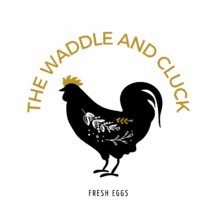Quail eggs are a culinary treasure that have gained popularity for their delicate flavor and versatility. Whether you’re using them in salads, appetizers, or as a snack, learning how long to boil quail eggs is essential to getting the best results. In this guide, we’ll explore everything you need to know about boiling quail eggs, from the perfect cooking times to tips for peeling them without frustration.

Why Choose Quail Eggs?
Quail eggs are smaller than chicken eggs but pack a similar nutritional punch. They are high in protein and rich in vitamins like B12, selenium, and riboflavin. While some people seek them out for their health benefits, others are drawn to their unique size and aesthetic appeal in dishes. Whatever your reason for trying quail eggs, proper preparation ensures you can enjoy them at their best.
Learn all about raising quail.

How Long to Boil Quail Eggs
One of the first questions people ask when cooking quail eggs is how long to boil them. Because of their small size, quail eggs cook much faster than chicken eggs. Timing depends on how you like your eggs—soft-boiled, medium-boiled, or hard-boiled.
Here’s a quick breakdown for how long to boil quail eggs:
- Soft-Boiled: 2 minutes
- Medium-Boiled: 3 minutes
- Hard-Boiled: 4 minutes
The cooking time starts once the water is boiling and the eggs are added. It’s important to note that even a small difference in time can significantly affect the texture of quail eggs due to their size.
Step-by-Step Instructions for Boiling Quail Eggs
Boiling quail eggs is simple, but there are a few techniques that can make the process easier and help you achieve the desired results.
- Start with Cold Water: Place the quail eggs in a pot and cover them with cold water. The water level should be about an inch above the eggs. Starting with cold water helps prevent cracking and ensures even cooking.
- Bring to a Boil: Place the pot on the stove and bring the water to a rolling boil over medium-high heat. Be careful not to let the water boil too vigorously, as the delicate shells can crack.
- Time the Cooking: Once the water reaches a boil, reduce the heat slightly and start timing based on your preferred doneness (2 to 4 minutes). Use a timer to avoid overcooking.
- Cool Quickly: After boiling, transfer the eggs immediately to a bowl of ice water or place them under cold running water. This stops the cooking process and makes the eggs easier to peel.
How to Peel Quail Eggs Easily
Peeling quail eggs can be tricky due to their small size and fragile shells. However, with the right approach, you can peel them without too much hassle. Start by gently tapping the eggs on a hard surface to crack the shell. Roll the egg between your hands to loosen the shell further. The key is to remove the thin inner membrane along with the shell. Doing this under running water can help.
If you’re preparing a large batch, consider soaking the eggs in a mixture of water and vinegar for a few minutes before peeling. The vinegar softens the shell, making it easier to remove.
Common Mistakes to Avoid
When boiling quail eggs, there are a few pitfalls to watch out for:
- Overcooking: Even an extra minute can lead to a rubbery texture and a grayish ring around the yolk in hard-boiled eggs. Use a timer to prevent this.
- Boiling Too Vigorously: This can cause the shells to crack and the whites to leak into the water. A gentle simmer is ideal.
- Skipping the Ice Bath: Without cooling the eggs quickly, they may continue to cook, leading to overdone yolks and making them harder to peel.
Creative Ways to Use Boiled Quail Eggs
Once you’ve mastered boiling quail eggs, you’ll find many ways to incorporate them into your meals. Here are a few ideas:
- Salads: Add halved quail eggs to green salads or pasta salads for a touch of protein and visual appeal.
- Appetizers: Use quail eggs as toppings for canapés or pair them with smoked salmon for an elegant appetizer.
- Snacks: Sprinkle a little salt and pepper on boiled quail eggs for a simple, high-protein snack.
- Pickled Quail Eggs: Marinate them in a mixture of vinegar, spices, and herbs for a tangy treat that lasts for days.

Are There Nutritional Differences Compared to Chicken Eggs?
While the nutritional content of quail eggs is similar to that of chicken eggs, they contain slightly higher amounts of certain nutrients, like vitamin B12 and iron, on a per-gram basis. They are also lower in cholesterol and easier to digest, making them a popular choice for people with dietary restrictions. However, due to their size, it typically takes four to five quail eggs to equal the nutritional value of one chicken egg.
Storage Tips for Boiled Quail Eggs
If you’ve boiled more quail eggs than you can eat in one sitting, you can store them for later use. Keep peeled or unpeeled boiled quail eggs in an airtight container in the refrigerator. They can last up to a week when stored properly. Avoid freezing boiled eggs, as the texture changes significantly once thawed.
Final Thoughts – How Long to Boil Quail Eggs
Boiling quail eggs is a straightforward process that opens up a world of culinary possibilities. By understanding how long to boil quail eggs and following a few simple steps, you can achieve perfect results every time. Whether you enjoy them soft-boiled or hard-boiled, these little eggs are a versatile addition to your kitchen repertoire. Experiment with different recipes, and don’t be afraid to get creative.








